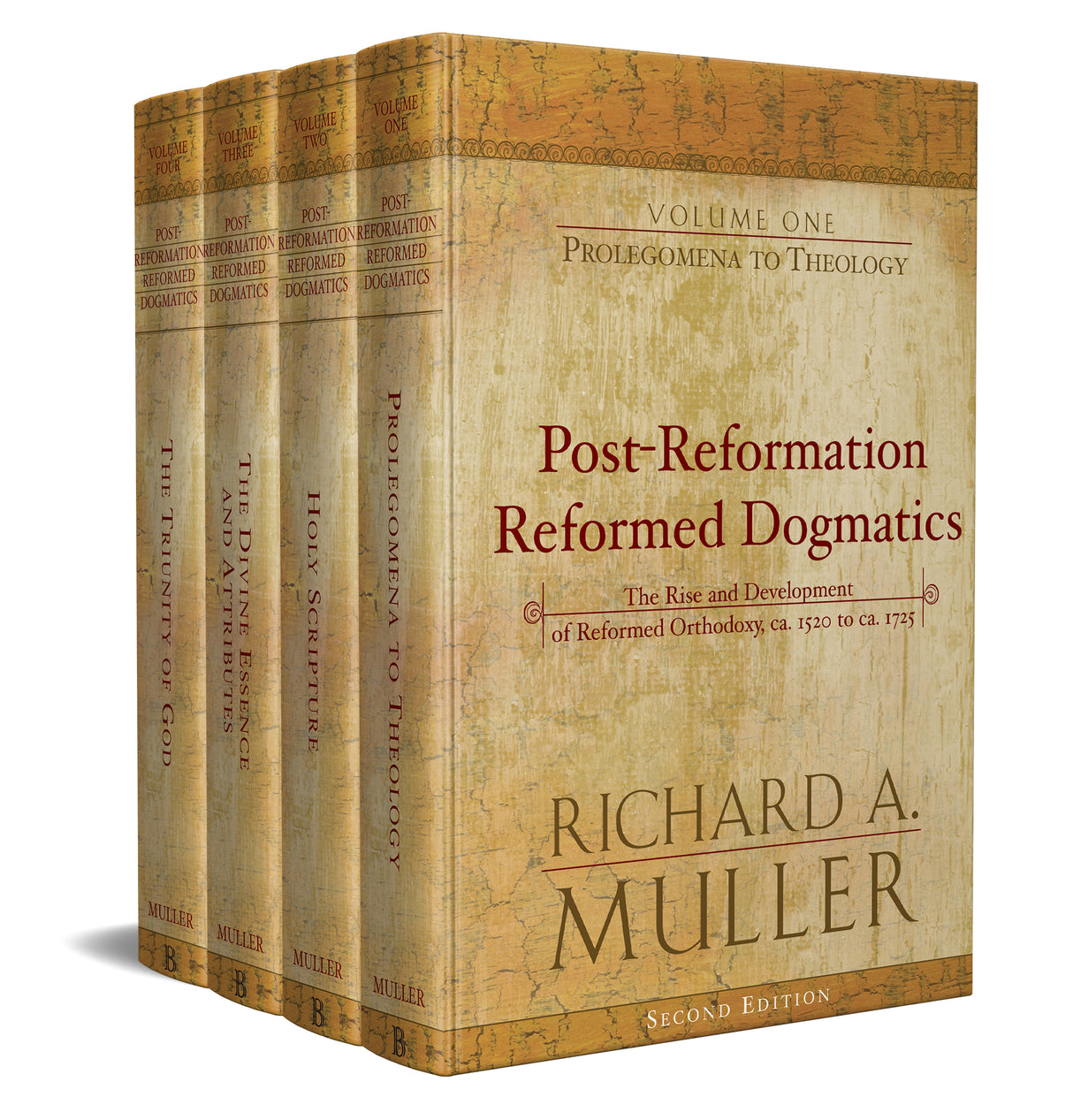Post-Reformation Reformed Dogmatics: The Rise and Development of Reformed Orthodoxy, ca. 1520 to ca. 1725
Muller, Richard A.
Sign up to be the first to know when it's here
Contending that the theology of the sixteenth and seventeenth centuries is often misrepresented in church histories and scholarly treatments, Richard Muller has undertaken this exhaustive study of specific doctrines to demonstrate how doctrine developed in the early Protestant period.
Volume one, Prolegomena to Theology, introduces the study of Protestant scholasticism. Muller defines theology and religion and discusses several aspects of theology as they were understood in the post-Reformation era, including its divisions, object and genus, and fundamental principles.
Volume two, Holy Scripture, examines post-Reformation understandings of Scripture as the word of God, its divinity, its properties, the integrity of the canon, and its interpretation.
Volume three, The Divine Essence and Attributes, examines post-Reformation theology on the unity of God's existence, God's divine essence and attributes, and divine will. Included is an analysis of the doctrine of God from the twelfth to the early eighteenth century.
Volume four, The Triunity of God, examines the doctrine of the Trinity, including unity and distinction in the Trinity as they were understood in the sixteenth and seventeenth centuries, and addresses the deity and person of God the Father, God the Son, and God the Holy Spirit.
This important historical and theological treatment is now available as both individual volumes and as a complete set. The revised versions of volumes one and two include updated bibliographic references, rearranged chapters and sections, and attractive formatting to match volumes three and four, which are available for the first time. Scholars, students of the Reformation, theological libraries, and devoted Reformed readers will find these volumes indispensable.
-
Cover Type
-
ISBN
-
Page Count
-
Publisher
-
Publication Date








